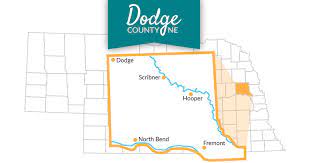
The Agriculture Committee advanced measures this session that expand a riparian weed control program, update the Nebraska Wheat Resources Act and improve the state’s ability to plan for and respond to emergency catastrophic livestock mortality events.
LB805, introduced by Sen. Dan Hughes of Venango and passed on a vote of 39-1, includes several measures heard by the committee this session.
The bill expands a grant program intended to control noxious weeds and invasive plant species in Nebraska’s rivers.
Currently, eligible projects must be related to vegetation management within a streambank or within 100 feet of the banks of a channel of any natural stream. Under Hughes’s proposal, management activities may extend to a natural stream’s floodplain.
The bill includes provisions of two other proposals introduced by Hughes, including LB712, which makes several changes to the Black-Tailed Prairie Dog Management Act.
The act, which authorizes county boards to control black-tailed prairie dogs on property within the county, requires landowners to manage prairie dog colonies on their property to prevent the animals from expanding to adjacent property if a neighboring landowner objects to the expansion.
Under LB805, an adjacent landowner may waive their objection to the expansion of a prairie dog colony onto their property. The proposal also repeals provisions under which landowners who are responsible for an unmanaged prairie dog colony could be found guilty of an infraction and fined up to $1,500.
Currently, a county’s failure to publish general notice of a prairie dog management plan — or to serve a landowner with individual notice of a plan — does not exempt a landowner from the law’s requirements.
LB805 repeals that provision but retains a landowner’s duty to manage prairie dog colonies on their property. The bill further clarifies that counties must serve individual notices by certified mail.
The provisions of LB802 update the Nebraska Wheat Resources Act, which authorizes a 0.4 percent excise tax on wheat sold through commercial channels in Nebraska.
The measure repeals the requirement that growers pay the checkoff when wheat is pledged or mortgaged as security for a federal price support program loan. Under the bill’s provisions, the tax will be collected only by the first purchaser when the wheat is sold, and will not be collected if wheat is sold as seed.
First purchasers must maintain a record of all settlements in which they did not collect the excise tax and report the number of bushels of wheat for which they did collect it.
The provisions also authorize the Nebraska Wheat Development, Utilization and Marketing Board to acquire ownership rights to any wheat variety and to develop, produce, market or sell seed for any wheat variety it owns.
LB848, introduced by Hastings Sen. Steve Halloran and passed 44-0, adds express authority for the state Department of Agriculture to support the development and execution of catastrophic livestock mortality disposal plans at the state level and assist county or other local emergency management organizations.
Current law assigns a duty to livestock owners to properly dispose of dead animals in a timely manner. LB848 allows the department director to authorize transport to a disposal site designated by a local authority in the event of an emergency that results in large-scale livestock deaths or necessitates wide-scale depopulation.







